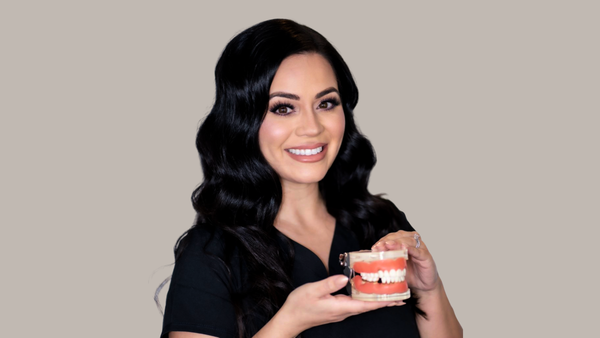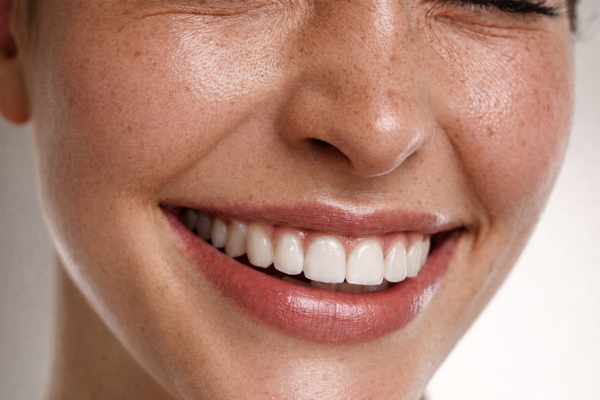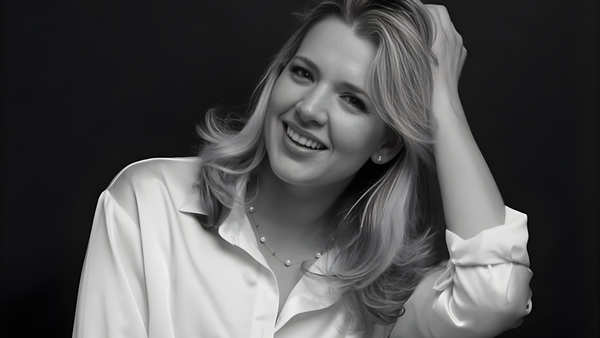Burnout in Dental Hygiene: A Silent Epidemic Behind Scalers

By Melia Lewis, RDH
Picture this: the lights buzz softly overhead as a dental hygienist finishes polishing their last patient of the day. Shoulders ache, her wrist throbs, and exhaustion hides behind the Level 3 mask. Not just the “I need a good night’s sleep” kind of tired — but the deeper, trickier fatigue that comes with emotional depletion and professional disillusionment. This RDH loves their patients, their profession, and the people they work with. But something has changed.
Can you relate?
The Reality of Burnout in Dental Hygiene
Burnout, once associated mostly with high-powered executives or hospital nurses, has silently crept into dentistry — and in the past five years, it’s set off alarm bells.
A 2022 survey conducted by the American Dental Hygienists’ Association (ADHA) revealed that over 50% of dental hygienists report experiencing symptoms of burnout: emotional exhaustion, depersonalization, and a decreased sense of personal accomplishment. Many cite increased patient loads, lack of appreciation from employers, poor ergonomics, and limited career mobility as contributors.
The profession — while rewarding — is physically demanding and emotionally taxing. What other profession expects a tightly booked schedule, no breaks, constant interaction with anxious people, little sunlight, and regular reminders from patients that they “hate the dentist”? Add to that recent changes allowing on-the-job dental hygiene training in some states — undermining our education and expertise — and it’s a lot to take on.
A Personal Toll
Burnout sneaks in quietly. Maybe you dread Mondays. Maybe tasks that once brought joy — educating patients, removing deposits, advocating for overall health — now feel routine. Maybe you feel unseen by your team. I’ve been there.
I’ve sat in my car, crying after a rough morning, before returning to face an afternoon of radiographs, sterilization, infection control, and a smiling mask. During my time in full-time practice, I often Googled phrases like “getting out of dentistry” or “going back to school.”
Understanding Burnout: More Than Fatigue
Burnout is chronic physical and emotional exhaustion caused by prolonged workplace stress. In healthcare, it’s often linked to compassion fatigue — when caregivers absorb others’ pain without proper support.
Common signs in dental hygiene:
- Persistent fatigue, even after rest
- Detachment from patients or coworkers
- Declining quality of care
- Physical pain, headaches, or sleep issues
- Feeling undervalued or professionally stuck
Many assume it’s just “part of the job” and power through — but long-term, burnout can lead to mental health issues, early retirement, or leaving the field entirely.
Why Is Burnout in Hygiene So High?
Every story is unique, but common threads include:
• Physical strain: Repetitive motions, static posture, poor ergonomics.
• Productivity pressure: Tight schedules, production goals, no-shows — all without support.
• Lack of recognition: Micromanagement, limited autonomy, and being seen as "scalers."
• Career stagnation: No advancement, rigid practice acts, lack of leadership pathways.
• Toxic work environments: Gossip, poor communication, lack of HR systems or support.
Recent ADA support of on-the-job training for hygiene roles further undermines our licensure and expertise, worsening morale.
Curbing Burnout: A Way Forward
I didn’t quit the profession, but I made real changes — including reducing clinical days. Through friends, mentors, and trial-and-error, I found ways to protect my well-being.
Here’s what helped me:
1. Prioritize ergonomics. Invest in loupes, ergonomic chairs, and stretch regularly.
2. Advocate for yourself. Ask for longer appointments, better instruments, or support with charting.
3. Explore non-clinical roles. Sales, education, research, advocacy — even part-time — can reignite passion.
4. Build community. Join ADHA, attend CEs, network with other RDHs. These connections open doors.
5. Focus on mental health. Work with a therapist, try guided mindfulness apps. Protect your emotional energy.
6. Reconnect to your “why.” Volunteer, mentor, or create something new. Rediscover what drives you.
A Profession Worth Protecting
Dental hygiene is a beautiful, powerful profession. I’ve seen firsthand how we impact health, prevent disease, and transform lives. But we can’t do that if we’re depleted.
Burnout isn’t your fault. It’s a signal that something must change — and it can.
Final Thoughts
If you’re exhausted, you’re not alone. You’re not broken. You’re part of a passionate, resilient community. Speak up. Seek help. And most importantly, give yourself permission to redefine what your career — and life — should look like.




